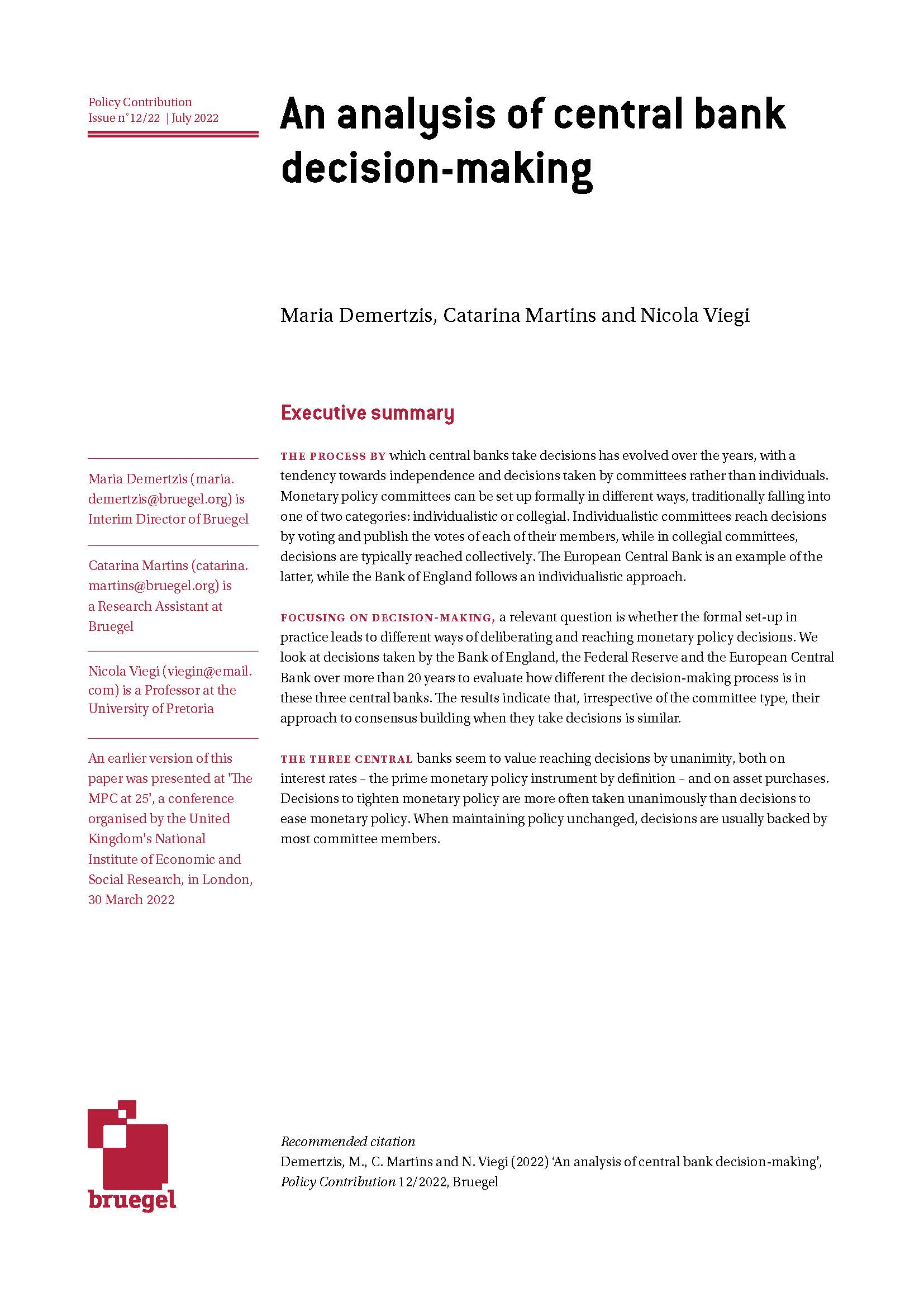Policy Contribution
An analysis of central bank decision-making
An earlier version of this paper was presented at ‘The MPC at 25’, a conference organised by the United Kingdom’s National Institute of Economic and Social Research, in London, 30 March 2022 The process by which central banks take decisions has evolved over the years, with a tendency towards independence and decisions taken by committees […]
An earlier version of this
paper was presented at ‘The
MPC at 25’, a conference
organised by the United
Kingdom’s National
Institute of Economic and
Social Research, in London,
30 March 2022
The process by which central banks take decisions has evolved over the years, with a
tendency towards independence and decisions taken by committees rather than individuals.
Monetary policy committees can be set up formally in different ways, traditionally falling into
one of two categories: individualistic or collegial. Individualistic committees reach decisions
by voting and publish the votes of each of their members, while in collegial committees,
decisions are typically reached collectively. The European Central Bank is an example of the
latter, while the Bank of England follows an individualistic approach.
Focusing on decision-making, a relevant question is whether the formal set-up in
practice leads to different ways of deliberating and reaching monetary policy decisions. We
look at decisions taken by the Bank of England, the Federal Reserve and the European Central
Bank over more than 20 years to evaluate how different the decision-making process is in
these three central banks. The results indicate that, irrespective of the committee type, their
approach to consensus building when they take decisions is similar.
The three central banks seem to value reaching decisions by unanimity, both on
interest rates – the prime monetary policy instrument by definition – and on asset purchases.
Decisions to tighten monetary policy are more often taken unanimously than decisions to
ease monetary policy. When maintaining policy unchanged, decisions are usually backed by
most committee members.
Recommended citation
Demertzis, M., C. Martins and N. Viegi (2022) ‘An analysis of central bank decision-making’,
Policy Contribution 12/2022, Bruegel









